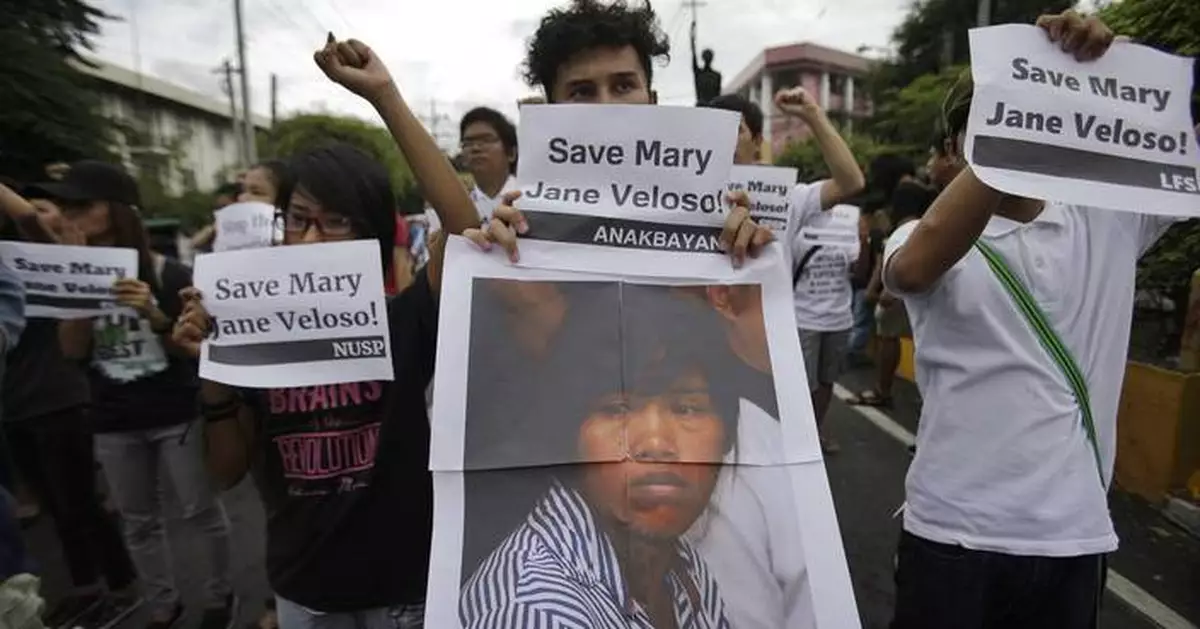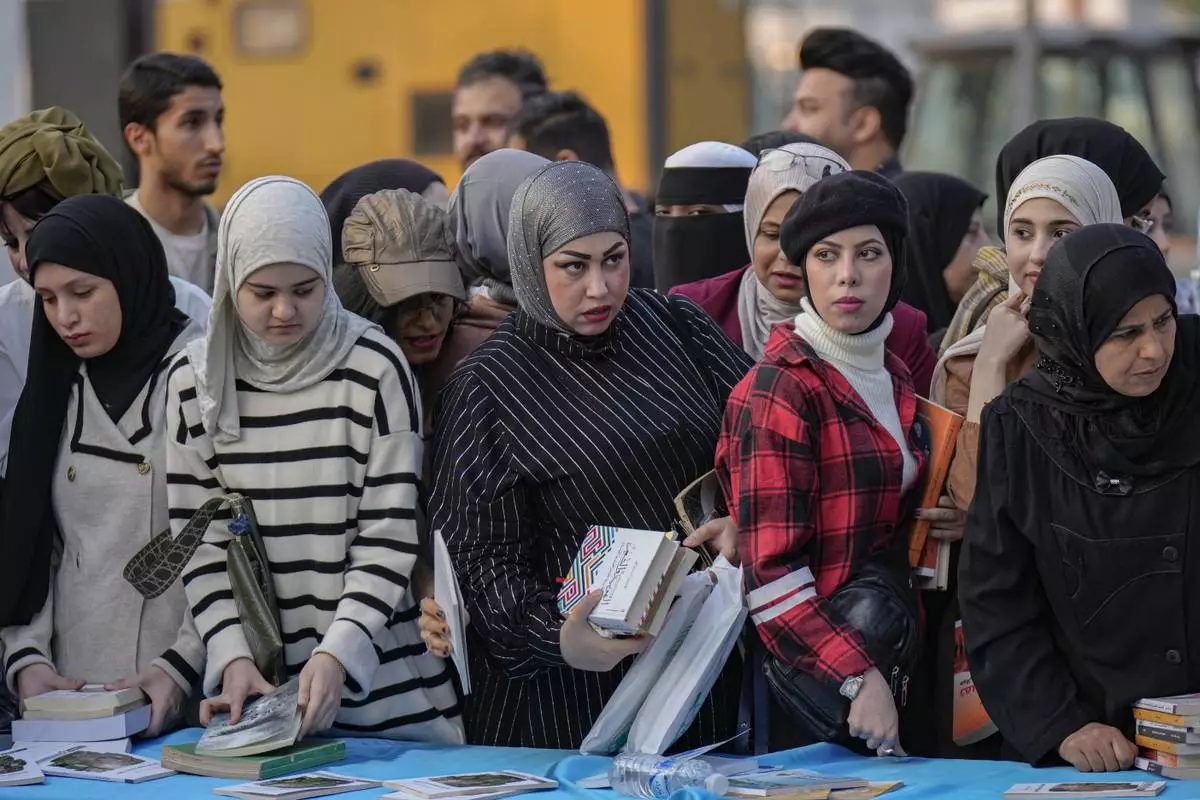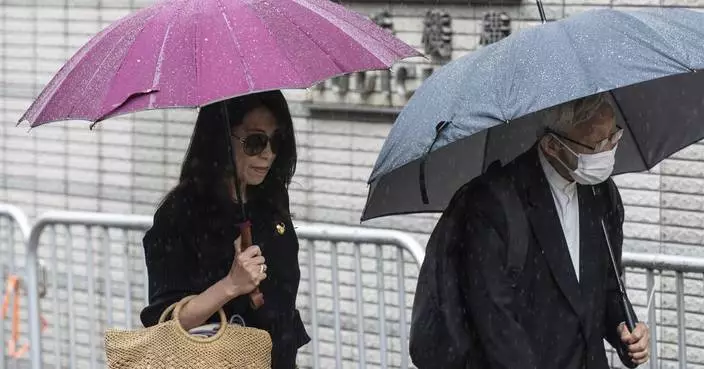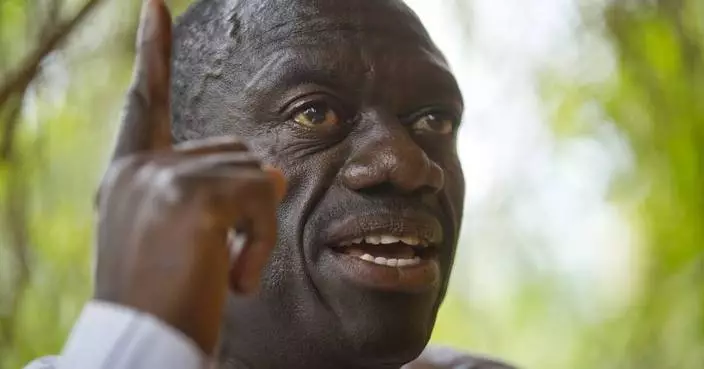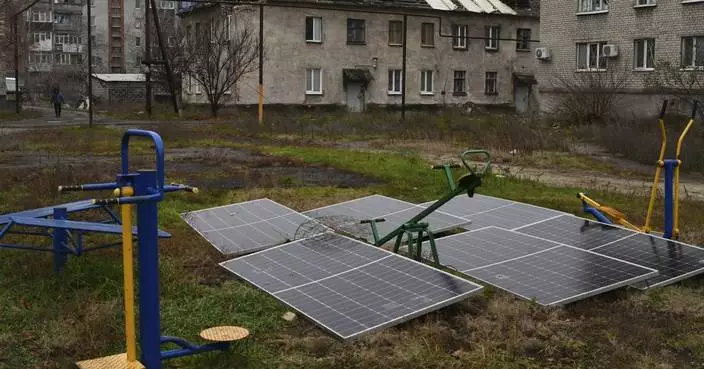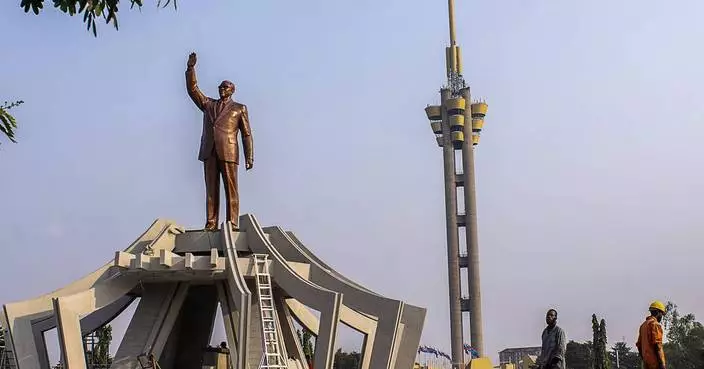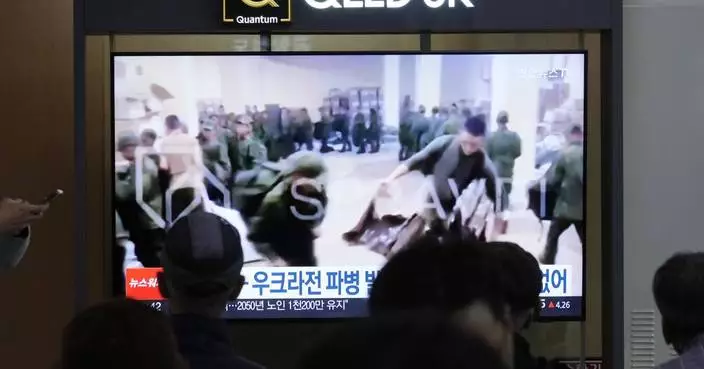MANILA, Philippines (AP) — Philippine President Ferdinand Marcos Jr. said Wednesday that a deal has been reached for Indonesia to send back a Filipino death-row drug convict, who was nearly executed by firing squad but got a reprieve due to years of pleadings from Manila.
Marcos thanked Indonesian President Prabowo Subianto and his government for granting a longstanding Philippine request for Mary Jane Veloso to be brought back home to serve her sentence in her country.
“Mary Jane Veloso is coming home,” Marcos said in a statement. “Arrested in 2010 on drug trafficking charges and sentenced to death, Mary Jane’s case has been a long and difficult journey.”
It was not immediately clear when Veloso would be flown back to the Philippines, but Marcos said he looked forward to welcoming her home.
Indonesia's Ministry of Immigration and Correction said in a statement it was not aware of any agreement to release or transfer Veloso to the Philippines.
Evi Loliancy, the chief of Yogyakarta's female prison, told The Associated Press that Veloso would remain “under our supervision at the Yogyakarta Correctional Institution until there is a specific order regarding her transfer from the High Prosecutors’ Office."
Philippine Foreign Undersecretary Eduardo de Vega said at a news conference in Manila that Filipino authorities would discuss the legal terms of Veloso's transfer with their Indonesian counterparts. He added they had not asked for anything or specified when she may be repatriated.
The Indonesian government has asked the Department of Justice in Manila to formally request Veloso's transfer back to the Philippines, where she would still be detained. The Philippine justice secretary has sent the letter of request to Indonesia, Philippine Justice Department spokesperson Mico Clavano said.
“This is an example of a detainee moving from one criminal justice system in one jurisdiction to another,” Clavano said.
The decision, Marcos said, “is a reflection of the depth our nation’s partnership with Indonesia — united in a shared commitment to justice and compassion."
Details of the agreement were not immediately disclosed but if Veloso's transfer proceeds, it would remove the possibility of her facing an execution because the Philippines, Asia’s largest Roman Catholic nation, has long abolished the death penalty.
In 2015, Indonesian authorities moved Veloso to an island prison where she and eight other drug convicts were scheduled to be executed by firing squad despite objections from the convicts' home countries, including Australia, Brazil, France, Ghana and Nigeria.
Indonesia executed the eight other drug convicts.
Veloso’s case has caused a public outcry in the Philippines, where her family and supporters contend she is innocent and was unaware that somebody had concealed 2.6 kilograms (5.7 pounds) of heroin in her suitcase that was discovered when she entered Indonesia.
Philippine authorities had filed criminal complaints, including for human trafficking, against the illegal Filipino recruiters, who arranged for Veloso to work in Indonesia, Clavano said, adding she would serve as a crucial witness in the trial of the suspects when she returns.
That Philippine case helped convince Indonesian authorities to delay Veloso's execution and eventually consider her transfer back to her country, Clavano said.
A poor housewife, Veloso traveled to Indonesia in 2010 where her godsister reportedly told her a job as a domestic worker awaited her. Her godsister also allegedly provided the suitcase where the prohibited drugs were found.
Marcos said Veloso’s story resonated with many in the Philippines, as “a mother trapped by the grip of poverty, who made one desperate choice that altered the course of her life."
“While she was held accountable under Indonesian law, she remains a victim of her circumstances," Marcos said.
The Philippines has been a global source of manual labor, including many impoverished women who abandon their families for higher-paying jobs and better opportunities abroad. Alarming abuse, especially of Filipina house helpers, has prompted Philippine authorities to impose restrictions and safeguards but the exploitations have continued.
At least 59 Filipinos around the world face the death penalty mostly for drug and murder convictions, the Department of Foreign Affairs in Manila said.
Associated Press journalist Edna Tarigan in Jakarta, Indonesia contributed to this report.
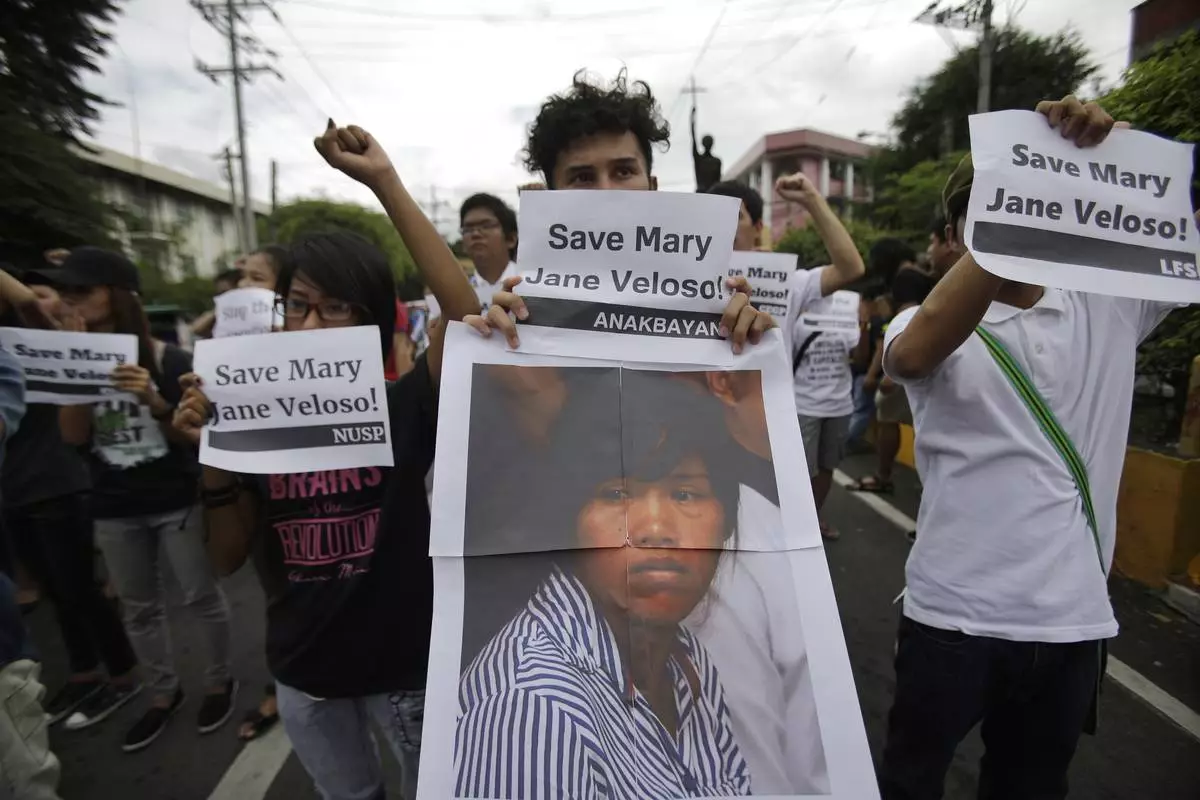
FILE - Protesters hold a picture of Mary Jane Veloso, a Filipino convicted drug trafficker in Indonesia, as they urge Philippine President save her from execution during a rally in Manila, Philippines on Tuesday, Sept. 13, 2016. (AP Photo/Aaron Favila, File)


